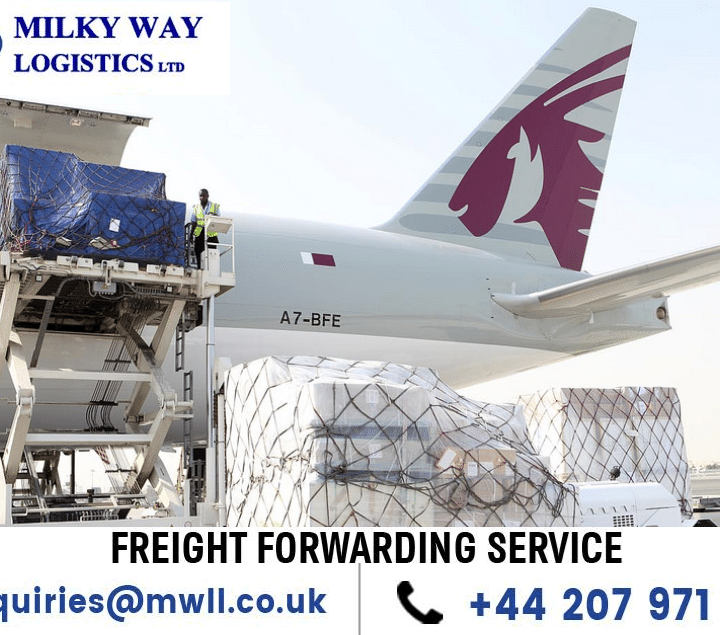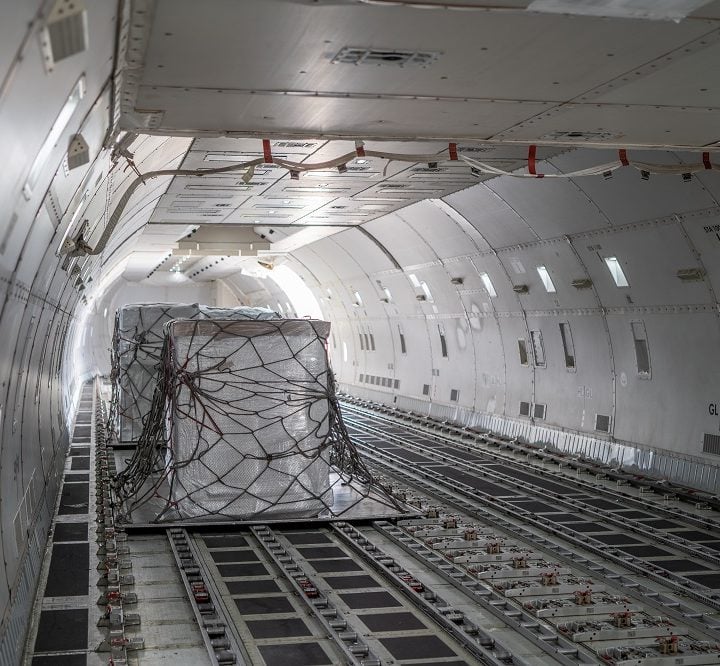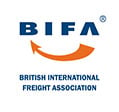
In today’s global marketplace, the efficiency of freight forwarding services is more critical than ever, particularly in the context of UK-Saudi Arabia trade relations. Milky Way Logistics Ltd, a leading London-based freight forwarder, plays an instrumental role in enhancing the bilateral export and import efficiency between these two nations. By optimizing the use of airfreight and sea freight, Milky Way Logistics ensures that businesses can navigate the complex freight and logistics landscape, comply with regulatory requirements, and achieve timely delivery across vast distances.
Airfreight:
The Fast Track to Market Airfreight stands out for its speed and efficiency, making it an essential mode of transport for UK exports to Saudi Arabia. This is especially true for time-sensitive goods, high-value items, and perishables. The agility of airfreight allows businesses to maintain lean inventory levels and respond swiftly to market demands. Industries such as pharmaceuticals, automotive parts, and high-tech rely on the rapid transit times that airfreight provides.
Milky Way Logistics enhances airfreight’s efficiency with tailored solutions that meet specific business needs. Their extensive network of airline partnerships and access to major airports in both countries ensure optimal routing and scheduling. Their expertise in handling customs clearance and documentation reduces potential delays, ensuring that goods reach their destination promptly.
Sea Freight:
The Backbone of International Trade Sea freight is a cornerstone of international trade between the UK and Saudi Arabia, offering a cost-effective solution for large volumes of goods. The strategic location of Saudi Arabian ports, like Jeddah Islamic Port, facilitates accessible market entries for UK exports. Machinery, transport equipment, chemical products, and foodstuffs are commonly shipped via sea freight, benefiting from its lower costs compared to airfreight.
Milky Way Logistics leverages its relationships with leading shipping lines to offer competitive rates and reliable schedules for sea freight. Their comprehensive services, including container loading and consolidation for smaller shipments, ensure goods are efficiently packed and routed. This minimizes costs and enhances the competitiveness of UK exports in the Saudi market.
Navigating Complexities The export journey from the UK to Saudi Arabia is filled with regulatory, logistical, and planning complexities. Milky Way Logistics, with its profound expertise and extensive network, facilitates this process seamlessly. They provide invaluable guidance on compliance with UK and Saudi Arabian regulations, ensuring exports proceed smoothly.
Their real-time tracking and updates add a layer of transparency and security, giving businesses peace of mind. Whether utilizing airfreight for its speed or sea freight for its economic benefits, exporters can rely on Milky Way Logistics to navigate the intricacies of international logistics.
Importing from Saudi Arabia to the UK
Importing goods from Saudi Arabia to the UK involves detailed logistics and regulatory attention. Airfreight is often chosen for goods requiring quick delivery, while sea freight is preferred for its cost-efficiency in transporting large volumes. Milky Way Logistics stands out for its excellence in managing these operations, optimizing both air and sea freight to maintain supply chain integrity and meet delivery schedules.
The Role of Freight Forwarding Milky Way Logistics Ltd embodies the strategic role of freight forwarding in UK-Saudi Arabia trade relations. Their bespoke solutions cater to unique business needs, ensuring efficient, reliable, and cost-effective transportation. Whether leveraging airfreight’s speed or sea freight’s volume advantages, Milky Way Logistics’s expertise and customer-centric approach guarantee successful international trade operations.
In conclusion, the pivotal role of Milky Way Logistics Ltd in facilitating exports from the UK to Saudi Arabia and imports in the reverse direction cannot be overstated. By bridging the gap between these markets, they ensure that businesses can rely on efficient, reliable, and cost-effective freight solutions. This optimization of UK-Saudi Arabia trade relations underscores the strategic importance of freight forwarding services in today’s interconnected global economy.
For companies and stakeholders involved in UK-Saudi trade, embracing the expertise of seasoned freight forwarders like Milky Way Logistics Ltd is key to navigating the complexities of international logistics and regulatory landscapes. Their ability to streamline the transport of goods across borders not only enhances trade efficiency but also contributes to the growth and competitiveness of businesses in both regions.
Custom Clearance for UK Import Entry from Saudi Arabia: A Comprehensive Guide In the intricate world of international trade, the process of importing goods from Saudi Arabia to the United Kingdom involves several critical steps, with customs clearance standing as one of the most pivotal. The United Kingdom, being a major global trading hub, has established specific customs regulations and procedures to manage the flow of goods into the country efficiently. For businesses and traders aiming to navigate this path successfully, understanding the nuances of customs clearance is essential. This article offers a comprehensive overview of the customs clearance process for UK import entry from Saudi Arabia, outlining key considerations, documentation requirements, and best practices to ensure smooth and compliant trade operations.
Understanding Customs Clearance Customs clearance is the process by which goods entering a country are reviewed and approved by the national customs authority. In the UK, HM Revenue & Customs (HMRC) is the governing body responsible for customs clearance, tax collection, and the enforcement of trade regulations. The process involves the submission of various documents that provide details about the goods being imported, their value, origin, and the parties involved in the trade. The primary goal is to ensure that all imports comply with UK laws and regulations, including safety standards, and to calculate the correct amount of import duties and taxes owed.
Key Steps in the Customs Clearance Process EORI Registration: Before importing goods into the UK, businesses must obtain an Economic Operator Registration and Identification (EORI) number. This unique identifier is used in all customs procedures and is essential for tracking and processing shipments.
Documentation Preparation: Accurate and complete documentation is crucial for smooth customs clearance. Essential documents include the commercial invoice, packing list, bill of lading (or air waybill for airfreight), and any required certificates or licenses specific to the type of goods being imported.
Duty and VAT Assessment: Import duties and Value Added Tax (VAT) are calculated based on the value of the goods, their classification under the Harmonized System (HS) codes, and their country of origin. Businesses may need to provide proof of origin to qualify for any preferential duty rates under trade agreements between the UK and other countries.
Customs Declaration: The customs declaration is a critical step in the clearance process, typically submitted electronically through the UK’s Customs Handling of Import and Export Freight (CHIEF) system or the new Customs Declaration Service (CDS). This declaration provides detailed information about the imported goods, enabling HMRC to assess compliance and duties.
Inspection and Release: Upon submission of the customs declaration and supporting documents, HMRC may select shipments for inspection to verify the accuracy of the information provided and ensure compliance with UK regulations. If everything is in order, the goods will be released for entry into the UK.
Best Practices for Smooth Customs Clearance Accurate Classification: Ensure goods are correctly classified according to the HS code system. Misclassification can lead to delays, penalties, and incorrect duty assessments.
Timely and Complete Documentation: Prepare and submit all required documentation promptly and ensure it is complete and accurate to avoid delays.
Compliance with Regulations: Stay informed about UK import regulations, including any restrictions or special requirements for specific types of goods.
Professional Assistance: Consider working with a customs broker or a freight forwarder experienced in UK-Saudi Arabia trade. These professionals can provide valuable assistance with paperwork, duty calculations, and compliance, making the customs clearance process more manageable.
To wrap up, Customs clearance is a critical gateway for goods entering the UK from Saudi Arabia, requiring careful attention to detail and adherence to regulations. By understanding the customs clearance process, preparing accurate documentation, and possibly enlisting professional assistance, businesses can navigate this complex landscape more effectively. Ensuring smooth customs clearance not only facilitates the timely delivery of goods but also contributes to the overall success and compliance of international trade operations between the UK and Saudi Arabia.
Navigating the customs clearance process for UK imports from Saudi Arabia is a complex but manageable task, essential for the seamless flow of international trade. By adhering to the outlined steps and best practices, businesses can ensure their goods move efficiently across borders, maintaining compliance with all regulatory requirements and contributing to successful global trade partnerships.













